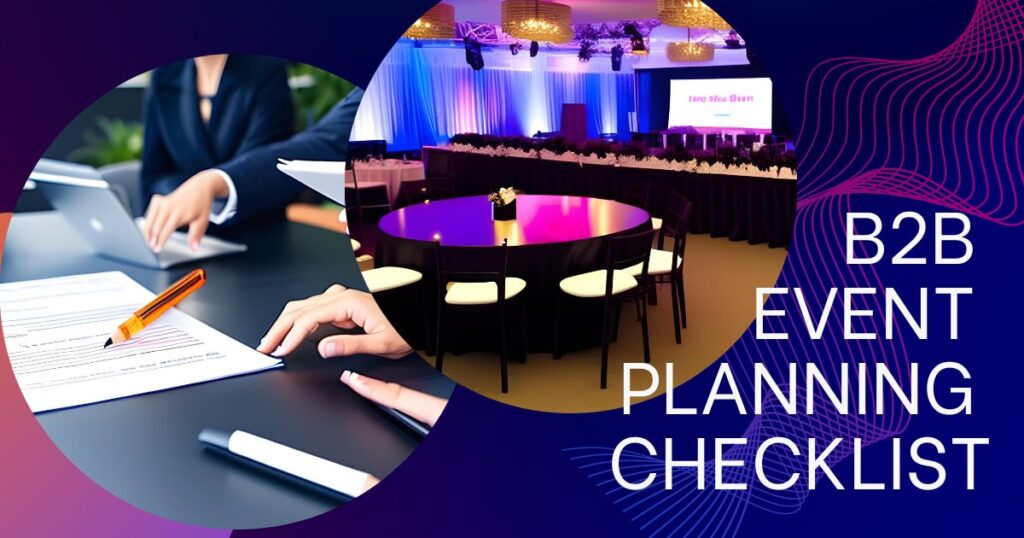
Corporate Physical Event Planning Checklist
Organizing a B2B corporate physical event is a complex task that requires meticulous planning and execution. Here’s a comprehensive checklist to help you ensure that all aspects of the event are covered:
1. Pre-Event Planning:
Define Event Objectives:
Clearly outline the goals and objectives of the event.
Determine what you want attendees to learn or achieve.
Budgeting:
Create a detailed budget that includes all expenses and potential revenue sources.
Allocate funds for venue, catering, marketing, speakers, and more.
Event Date and Venue Selection:
Choose a date that doesn’t clash with major holidays or industry events.
Select a venue that can accommodate your expected number of attendees and has the necessary tech infrastructure for presentations and networking.
Legal and Insurance:
Ensure you have all the necessary permits and insurance in place.
Draft contracts for vendors, speakers, and sponsors.
Event Branding and Marketing:
Develop a strong event brand and logo.
Create a marketing plan that includes online and offline promotion, social media, email campaigns, and partnerships.
Speaker and Agenda Management:
Secure knowledgeable and engaging speakers.
Create a detailed agenda with session topics, timings, and speaker bios.
Registration and Ticketing:
Set up an online registration system.
Decide on ticket pricing and categories.
Ensure smooth payment processing.
2. Logistics and Operations:
Event Materials:
Order event badges, signage, brochures, and other printed materials.
Prepare name tags for attendees and speakers.
Audio-Visual Setup:
Arrange for audio-visual equipment such as microphones, projectors, screens, and lighting.
Conduct technical rehearsals.
Catering:
Arrange for catering services that cater to dietary restrictions.
Plan for breakfast, lunch, and snacks.
Networking Opportunities:
Set up networking areas with comfortable seating.
Organize icebreakers or activities to encourage interaction.
Security Measures:
Hire security personnel to manage physical security.
3. On-Site Execution:
Event Staffing:
Ensure you have a dedicated team to handle registration, information desks, and technical support.
Registration Desk:
Set up a registration desk with all necessary materials.
Train staff to efficiently handle check-ins.
Event Checklists:
Use checklists to monitor various aspects of the event in real-time.
Have backup plans for common contingencies.
4. Post-Event:
Follow-Up:
Send thank-you emails to attendees, speakers, and sponsors.
Gather feedback through surveys.
Share event highlights on social media.
Financial Reconciliation:
Review event expenses and income to assess the financial performance.
Prepare financial reports for stakeholders.
Documentation:
Compile event photos, videos, and presentations for future reference.
Create a post-event report detailing successes and areas for improvement.
Evaluation and Planning for Future Events:
Analyze the event’s success against the defined objectives.
Use insights to plan future events, including changes or improvements.
Thank-You Gifts:
Send thank-you gifts or notes to speakers, sponsors, and volunteers.
Remember that the success of your event depends on thorough planning and attention to detail. Adapt this checklist to your specific needs and keep it handy throughout the event planning and execution process to ensure a successful event.